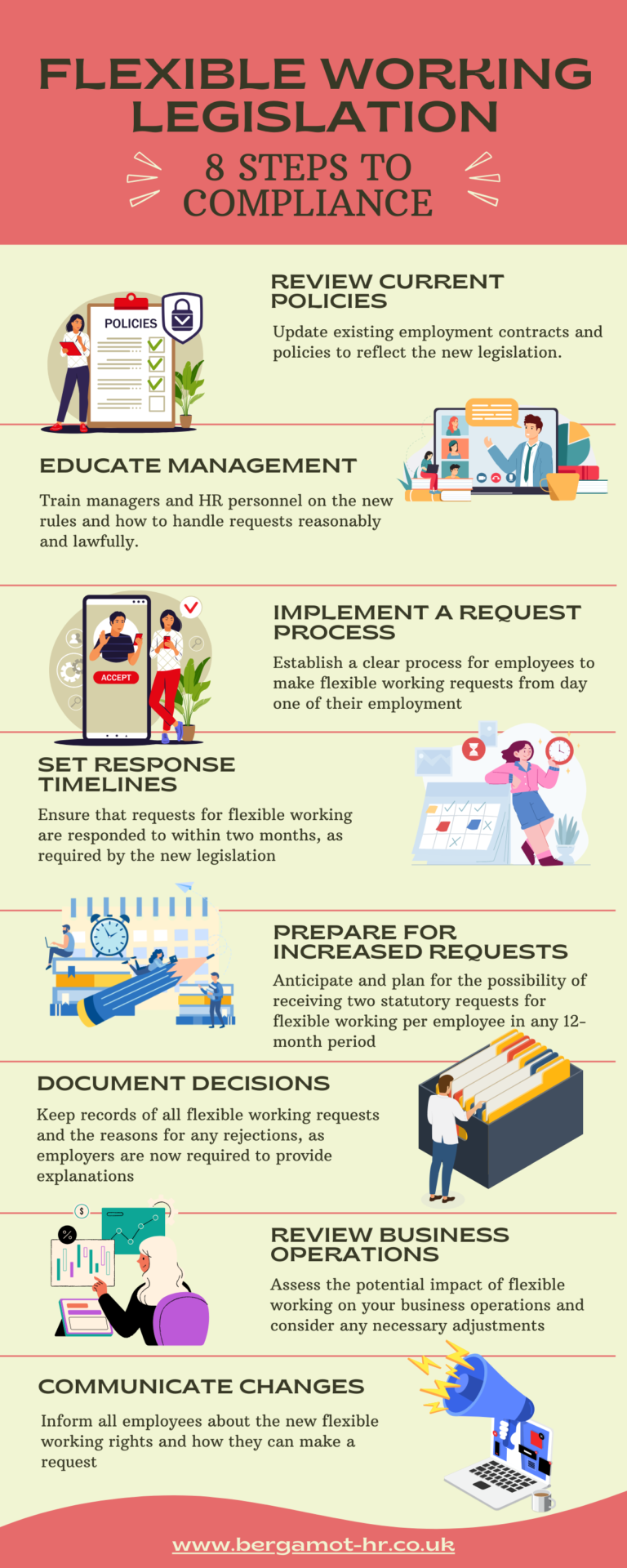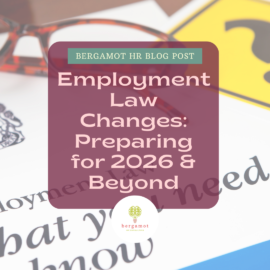
The new flexible working legislation comes into force in April. If you employ people, are you ready?
The Situation Prior To April 2024
Historically, parents and carers had the right to request flexible work. About 10 years ago, legislation was updated to give everyone the right to request flexible working if they had at least 26 weeks continuous service.
Employers are bound to consider flexible working requests in a reasonable manner. This means that the employer should assess the application, meet with the employee to discuss it, and offer an appeals process. Requests should be dealt with within a 3-month period, including an appeals process. Employees can make one request in a 12-month period.
Employers can only refuse a request based on a limited list of specific grounds:
- the burden of additional costs
- an inability to reorganise work amongst existing staff
- an inability to recruit additional staff
- a detrimental impact on quality
- a detrimental impact on performance
- a detrimental effect on ability to meet customer demand
- insufficient work available for the periods the employee proposes to work
- planned structural changes to the employer’s business
What Is Changing In April 2024?
Upcoming legislation later this year will eliminate the 26-week qualifying period, and employees can make a request from day one. Requests will need to be considered within 2 months and employees may make up to 2 requests in a 12-month period.
What Else Do You Need To Know About Flexible Working?
ACAS have a code of practice for flexible working requests that employers should follow. Although the code of practice is not legally binding, if an employer is taken to a tribunal, and they have failed to follow the ACAS code of practice, the tribunal can adjust any award by up to 25%. So, there is an incentive for employers to follow the code.
I would advise my clients to have a flexible working policy and procedure that reflects the ACAS code of practice, to make sure it is well communicated to their employees, and that they follow it.
I would also encourage them to embrace flexible working for the benefits it can bring to a business, not just because it is a legal requirement: attracting and retaining talent, employee satisfaction and engagement and inclusion and diversity.
As well as flexible working legislation, employers are also bound by the Equality Act, 2010. Employers must ensure they do not unlawfully discriminate against anyone with a protected characteristic when they make a request. For example, employers have a legal obligation to make reasonable adjustments for people with a disability, and the flexible working request may be a reasonable adjustment.
8 Steps To Help Your Business Achieve Flexible Working Legislation Compliance
1. Review Current Policies: Update existing employment contracts and policies to reflect the new legislation.
2. Educate Management: Train managers and HR personnel on the new rules and how to handle requests reasonably and lawfully.
3. Implement a Request Process: Establish a clear process for employees to make flexible working requests from day one of their employment.
4. Set Response Timelines: Ensure that requests for flexible working are responded to within two months, as required by the new legislation.
5. Prepare for Increased Requests: Anticipate and plan for the possibility of receiving two statutory requests for flexible working per employee in any 12-month period.
6. Document Decisions: Keep records of all flexible working requests and the reasons for any rejections, as employers are now required to provide explanations.
7. Review Business Operations: Assess the potential impact of flexible working on your business operations and consider any necessary adjustments.
8. Communicate Changes: Inform all employees about the new flexible working rights and how they can make a request.

If you need any help, please get in touch – I’d love to discuss how we could work together.
I can review your existing arrangements and update them, or design and implement what you need if you do not already have anything in place.





Pingback:Employment Law Update March 2024 - Bergamot HR